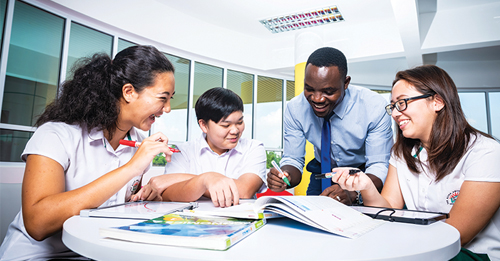‘Imagination is more important than knowledge’
Albert Einstein
Gone are the days when education was about a teacher imparting their knowledge on to their students. In order to be successful and ensure our students are equipped to thrive in an uncertain world, the most important thing we can teach our students are the learning habits needed to handle the unknown.
Cultivating and nurturing curiosity is what is at the top of any teacher’s agenda as they plan their lessons. Developing the skills and attributes to be able to grapple with ideas, problems and how to become unstuck will pave the way for lifelong learners.
Education in schools has got to be more than just preparing for the terminal examinations. We have got to ensure our students are prepared to flourish and not flounder.
The advancement of human civilisation has forced educators to re-evaluate their approach to learning and teaching in schools. The use of technology has altered and rewired our brains and there is no going back!
Therefore, we must either understand how our brains have been rewired and work with our students based on this or risk an uncertain future. We as educators and indeed parents must recognise that we are the ones who must adopt a new mindset in order to help our students and children be prepared for the unimaginable world which awaits them.
Most of our students do not need to look at a manual or a textbook. They are starting to realise that there is no value in memorising data or facts which they can easily access on their phones, iPads and laptops.
We are aiming to nurture students, beginning in Early Learning, who are not afraid to take risks, who are not shy to question authority and to seek the answers to their questions when they are not convinced with the answers they have received. Google, the go to at any given opportunity provides the vehicle for the development of these skills which are more than just knowledge.
We want students to persevere and see failure as great opportunities. To ensure this is the case, teachers need to create environments which are interactive, inviting, safe, challenging, personalised, and supportive. Environments which allow questioning, patience, be open to new ideas, and develop a high level of trust and confidence are what will contribute to successful lifelong learners.
Encouraging collaboration, teamwork, creativity, innovation, and understanding are key to creating students that will thrive when faced with adversity, cope with the unknown and ultimately flourish beyond school.
In the modern information age, as the amount of information and knowledge at our fingertips increases exponentially, it is the process of learning how to learn, applying and evaluating this knowledge that matters more than ever before.
Just the acquisition of knowledge will no longer be sufficient for lifelong learners in the 21st Century.



